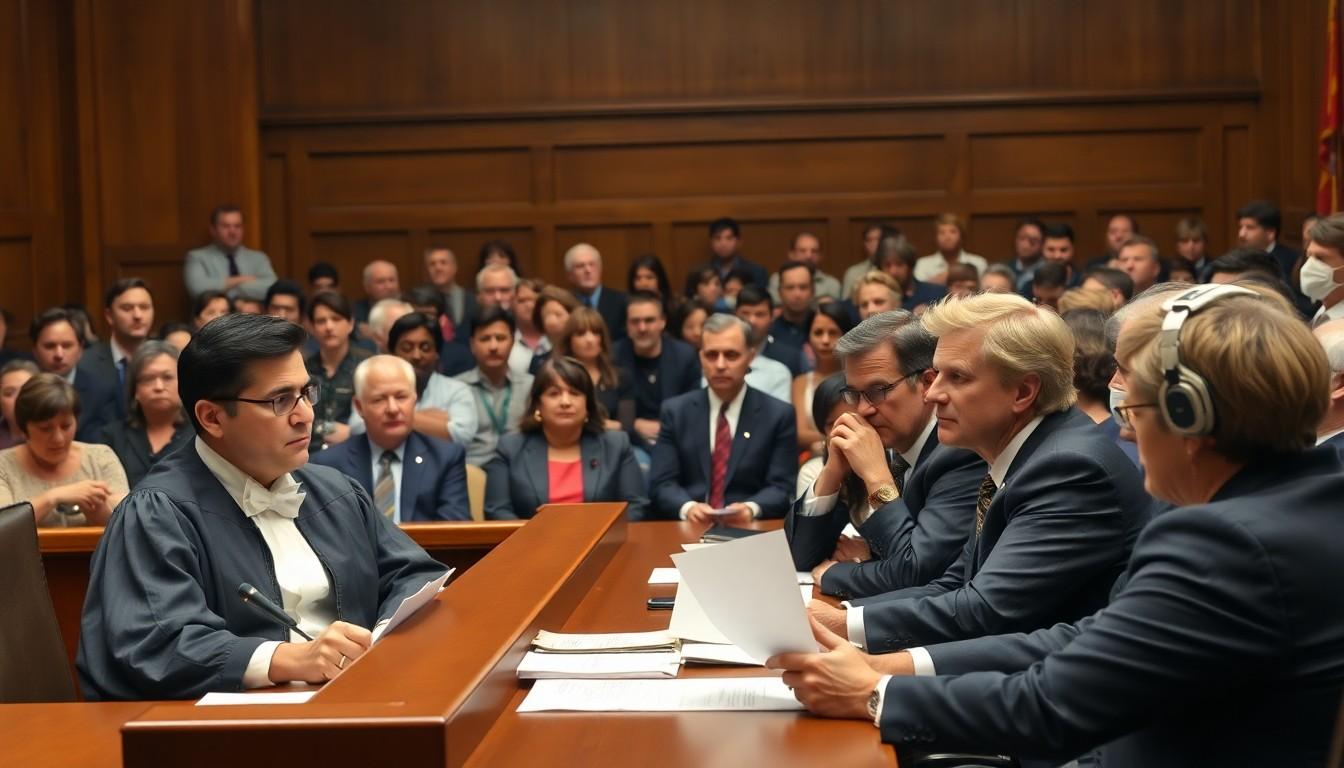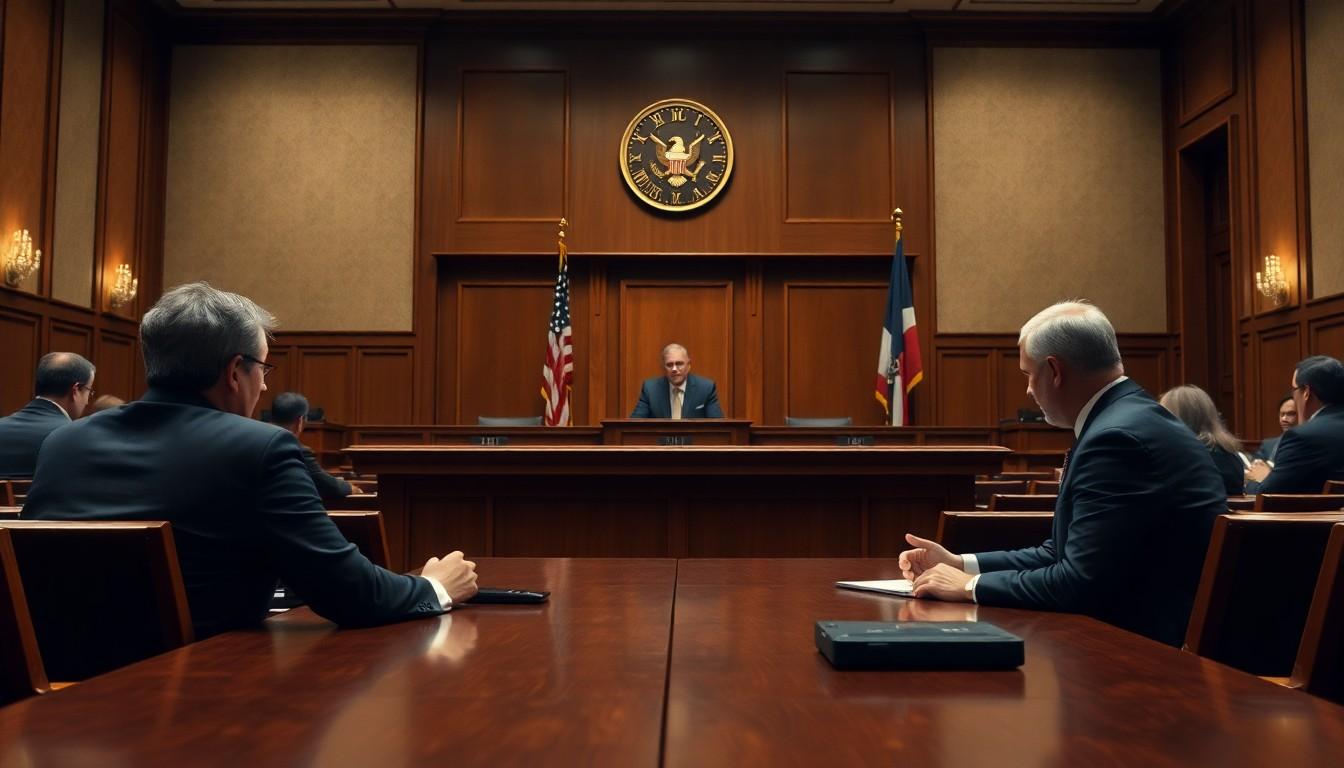
Trial News: The Dramatic Courtroom Stories Everyone is Talking About
In the world of legal drama, trial news is the ultimate reality show—minus the rose ceremonies and dramatic exits. Every day, courtrooms buzz with gripping stories that could rival any bestseller. From celebrity scandals to groundbreaking verdicts, these trials keep the public on the edge of their seats, eagerly waiting for the next twist.
But it’s not just about the courtroom theatrics. Understanding trial news is crucial for anyone who wants to stay informed about the legal landscape. Whether it’s a high-profile case or a local trial that’s turning heads, the implications can be far-reaching. So grab your popcorn and settle in, because the latest updates in trial news are sure to entertain and enlighten.
Overview of Trial News
Trial news captivates audiences with its blend of drama and real-world implications. Public interest often centers around celebrity cases, controversial verdicts, and high-stakes trials that unfold in courtrooms. Breaking information can reflect societal issues, shaping public opinion and influencing legislation.
Court proceedings reveal captivating narratives, making them relatable to everyday life. Individuals tune in to witness events uncensored, sparking conversations about justice, fairness, and morality. Significant cases like celebrity trials not only entertain but also educate viewers about legal processes.
Following trial news provides insights into the evolving legal landscape. Landmark decisions frequently set precedents, impacting future cases and reforms. Observers gain knowledge from expert analysis, commentary, and live coverage that informs better understanding of complex issues.
The role of media in disseminating trial news creates various perspectives. News outlets, legal analysts, and social media platforms contribute diverse viewpoints, allowing audiences to engage critically with ongoing developments. This multifaceted approach enhances public discourse around sensitive topics.
Challenges arise in distinguishing fact from sensationalism in trial coverage. Responsible journalism is essential for providing accurate representations of events. Engaging with reputable sources ensures that audiences remain informed and aware of the legal intricacies involved.
Staying updated on trial news enriches knowledge about the judicial system. It sparks interest in legal careers and encourages civic engagement. Ultimately, trial news serves not only as entertainment but also as a crucial component of an informed society.
Major Recent Developments

Recent developments in trial news continue to capture widespread attention. Notable court cases unfold, showcasing the complexity of the legal system while engaging audiences with gripping stories.
High-Profile Trials
Celebrity trials often dominate headlines, reflecting societal values and concerns. For instance, the ongoing case against a well-known figure highlights issues related to personal accountability and public expectation. These trials not only draw mass media coverage, they also foster widespread public discourse, prompting debates around ethics and the justice system. Public fascination with these high-profile cases often encourages greater scrutiny of the legal processes involved.
Significant Legal Precedents
Recent trials have established significant legal precedents that could reshape future litigation. A landmark ruling regarding digital privacy rights demonstrates the courts’ response to evolving technology. Legal experts predict that this decision will influence future cases surrounding personal data protection and privacy laws. Such precedents guide attorneys and policymakers in navigating the complexities of the law, highlighting the importance of staying informed about ongoing developments.
Impact on Public Perception
Public perception of the justice system often hinges on trial news. Significant cases capture attention and generate discussions about ethics and accountability.
Media Coverage
In-depth media coverage shapes public understanding of trials. Journalists often highlight key aspects, like testimonies and verdicts, which influence how audiences perceive justice. Comprehensive reporting from reputable sources fosters trust in legal proceedings. Sensationalized coverage, however, distorts facts and fuels misconceptions. Various outlets provide different angles, allowing the public to form a multifaceted view of cases. They also emphasize the impact of trial outcomes on societal norms and legislation.
Social Media Influence
Social media amplifies the reach of trial news remarkably. Platforms allow users to share opinions and engage in real-time discussions. Content from trials can spread rapidly, reaching diverse audiences. Viral posts often lead to heightened emotional responses and public engagement. Conversations on platforms like Twitter and Facebook reflect collective sentiments, shaping perceptions. Social media also presents challenges, with misinformation potentially muddling facts. Immediate reactions often drown out balanced discussions, complicating the public’s understanding of complex legal issues.
Changes in Legal Practices
Trial practices evolve continually, reflecting shifts in societal values and technological advancements. Recent changes significantly impact how legal proceedings unfold.
Innovations in Trial Procedures
Innovations in trial procedures improve efficiency and accessibility. Courts now employ streamlined processes to enhance case management and reduce delays. Additionally, alternative dispute resolution methods, such as mediation and arbitration, offer parties less adversarial ways to resolve conflicts. These approaches can result in quicker resolutions, often preserving relationships between parties. Jurisdictions increasingly adopt collaborative law techniques, where lawyers and clients work together to reach practical solutions. Such innovations contribute to a more dynamic legal environment that responds to the needs of various stakeholders.
Technology in the Courtroom
Technology reshapes courtroom experiences significantly. Video conferencing tools allow remote testimonies, enhancing accessibility for witnesses who cannot appear in person. Digital evidence presentation tools simplify complex cases, enabling juries to grasp intricate details. Furthermore, artificial intelligence applications assist lawyers in legal research, streamlining case preparation and analysis. Courts also implement electronic filing systems, expediting document submissions and reducing paper usage. These advancements not only improve efficiency but also enhance transparency in legal processes, fostering greater public trust in the judicial system.
Conclusion
Trial news serves as a powerful lens through which society can examine justice and accountability. The compelling narratives that unfold in courtrooms resonate deeply with the public, driving conversations about ethics and the legal system. As high-profile cases continue to make headlines, they not only entertain but also inform and educate audiences about their rights and the complexities of legal processes.
Engaging with trial news fosters a greater understanding of the evolving legal landscape and highlights the importance of responsible journalism. By staying informed, individuals can actively participate in discussions that shape public opinion and influence future reforms. The dynamic interplay between trial news and societal values ensures that these stories remain relevant and impactful in our lives.
